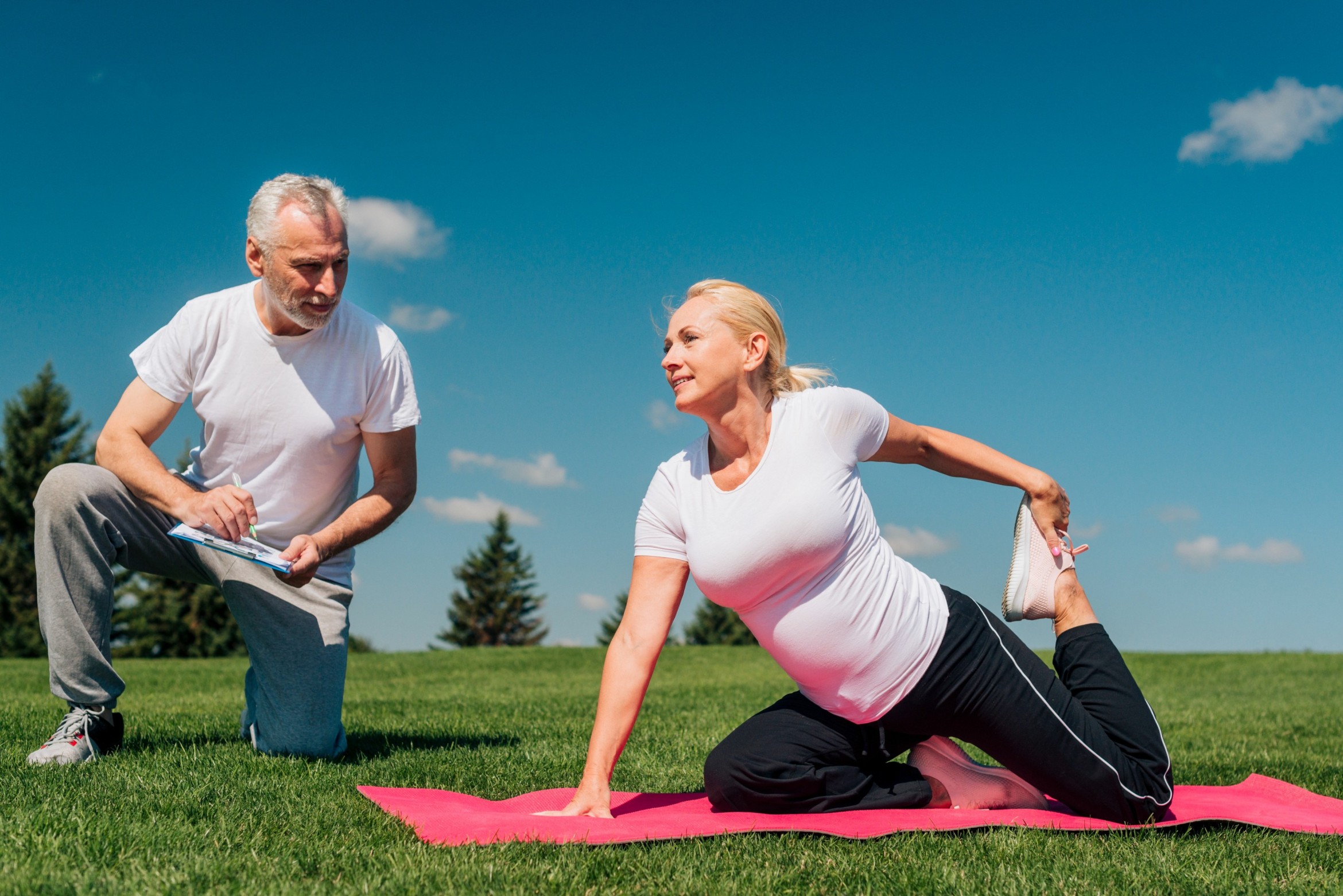Alright seniors, let’s show those youngsters how it’s done! Strap on your suspenders and grab your walkers, as we’re about to embark on a gentle and fun journey to a healthy gut and peaceful golden years! As we age, maintaining gut health becomes increasingly important for overall well-being. While diet plays a significant role, including gentle exercises into your routine can also benefit digestive health. In this article, we’ll explore a variety of gentle exercises suitable for seniors to support gut health and promote vitality in their golden years.
Understanding Gut Health and Aging

The digestive system undergoes changes as we age, including decreased digestive enzyme production, slower intestinal motility, and alterations in gut microbiota composition. These changes can contribute to common digestive issues like constipation, bloating, and poor nutrient absorption. Hence, maintaining a balanced diet rich in fiber, probiotics, and hydration is important for supporting gut health in seniors. Fiber helps promote regular bowel movements and prevent constipation, while probiotics contribute to a diverse and healthy gut microbiome. Adequate hydration also plays a vital role in maintaining proper digestion and preventing dehydration-related complications.
Furthermore, managing stress levels and seeking support from healthcare professionals when needed can further support digestive health in aging individuals. Last but not the least, regular physical activity can help reduce these issues by stimulating digestion and promoting bowel regularity.
Gentle Exercises for Seniors For a Healthy Gut
While you may think you are too old for exercising, you can surely try out the following gentle exercises. We believe your body will be able to support these exercises which will in turn keep you healthy.
1. Walking
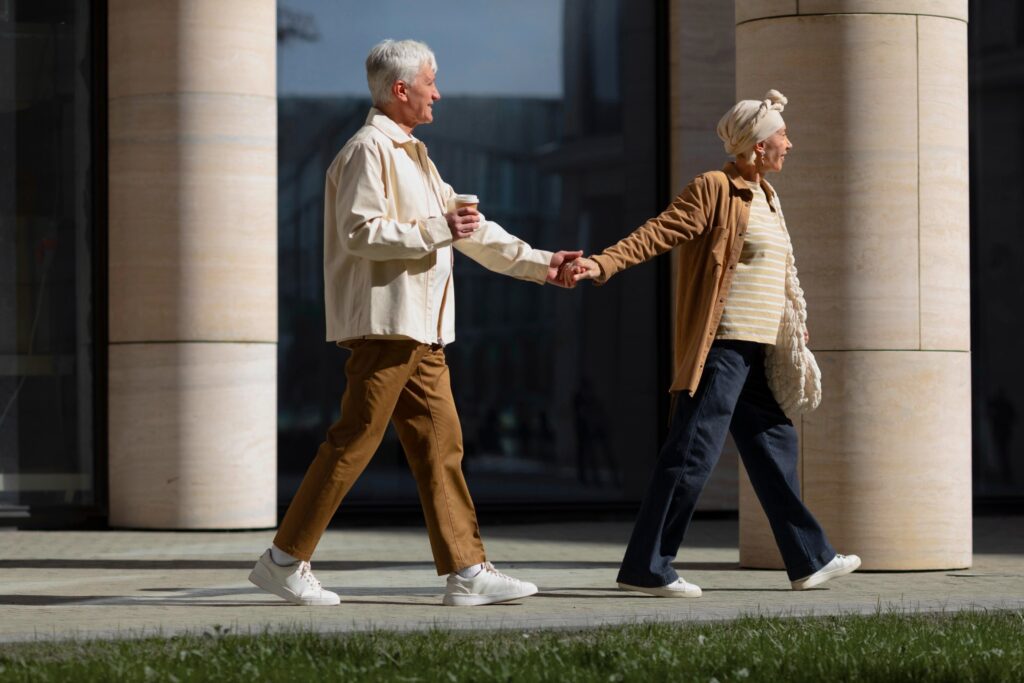
Walking is one of the most accessible and beneficial exercises for seniors. It improves circulation, aids digestion, and promotes overall cardiovascular health. Aim for at least 30 minutes of brisk walking most days of the week, either outdoors or on a treadmill. We’d recommend walking outdoors instead of a treadmill because the natural environment will further stimulate your body and inner peace.
2. Yoga
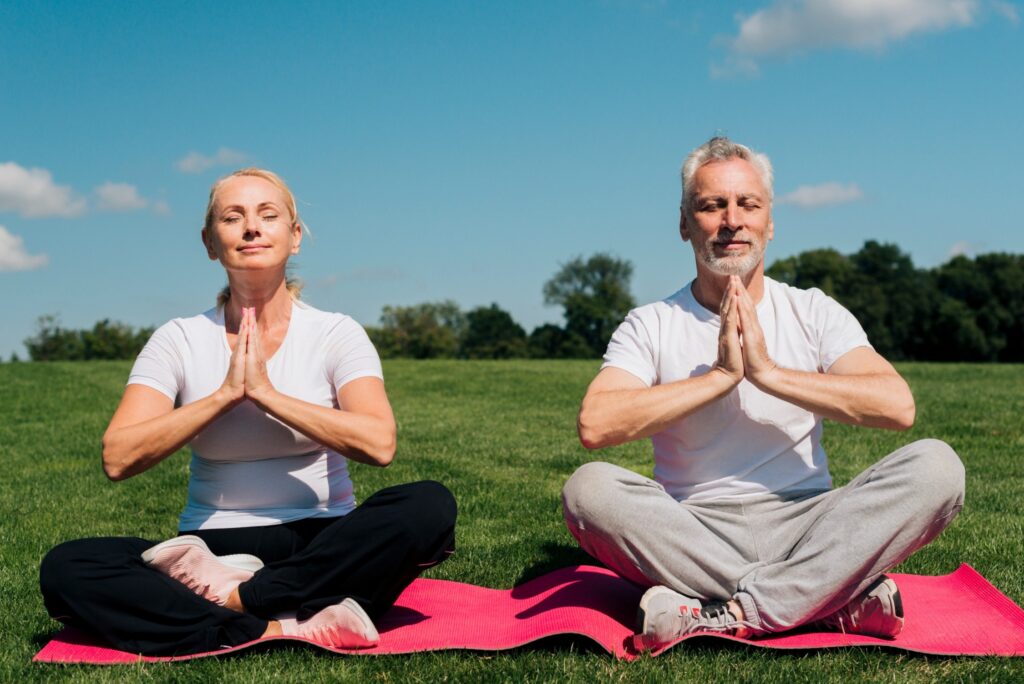
Yoga offers numerous benefits for seniors, including improved flexibility, balance, and stress reduction. Specific yoga poses, such as seated twists and gentle forward folds, can help massage the abdominal organs, stimulate digestion, and reduce bloating and gas.
3. Tai Chi
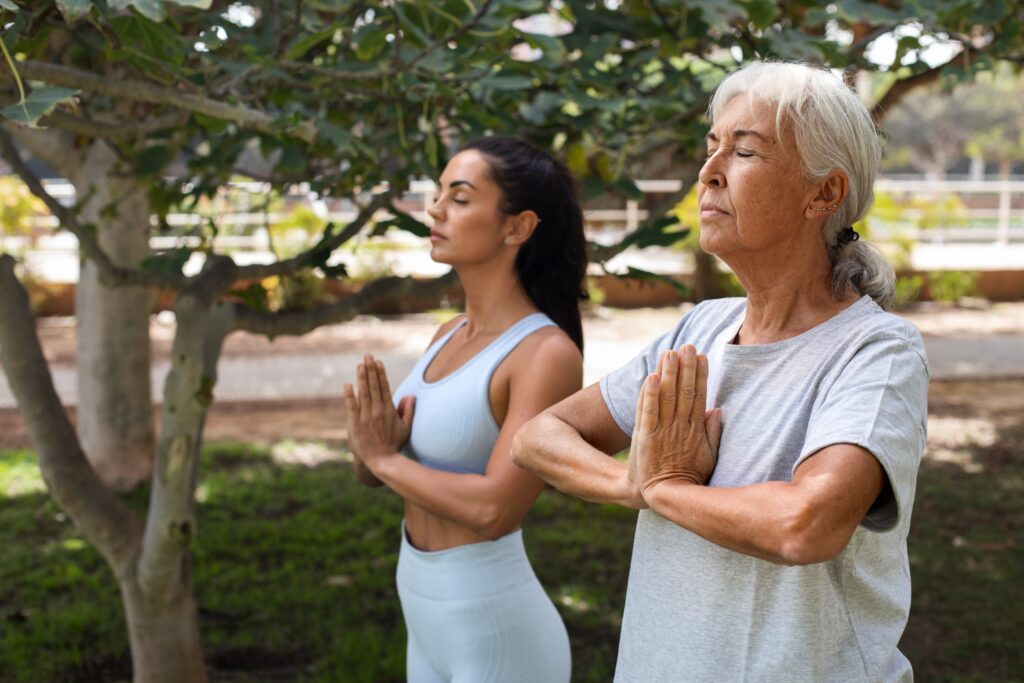
Tai Chi is a low-impact exercise that emphasizes slow, flowing movements and deep breathing. It promotes relaxation, improves balance and coordination, and can enhance digestive function by reducing stress and tension in the body.
4. Swimming
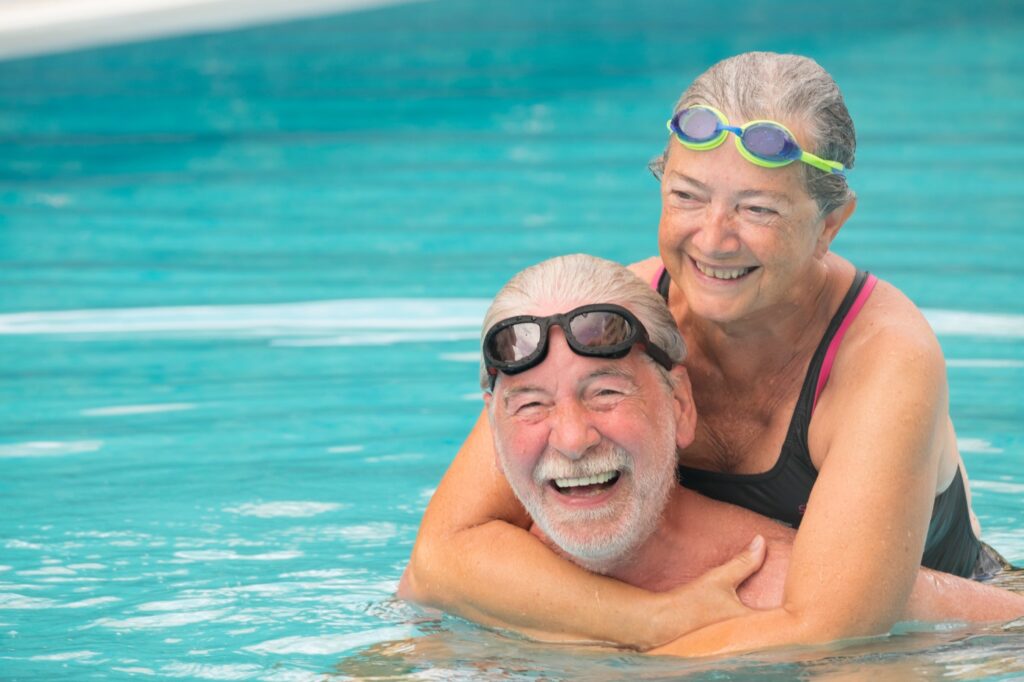
Swimming is an excellent low-impact exercise option for seniors with joint pain or mobility issues. It provides a full-body workout while minimizing strain on the joints. The rhythmic motion of swimming can also have a soothing effect on the digestive system.
5. Cycling
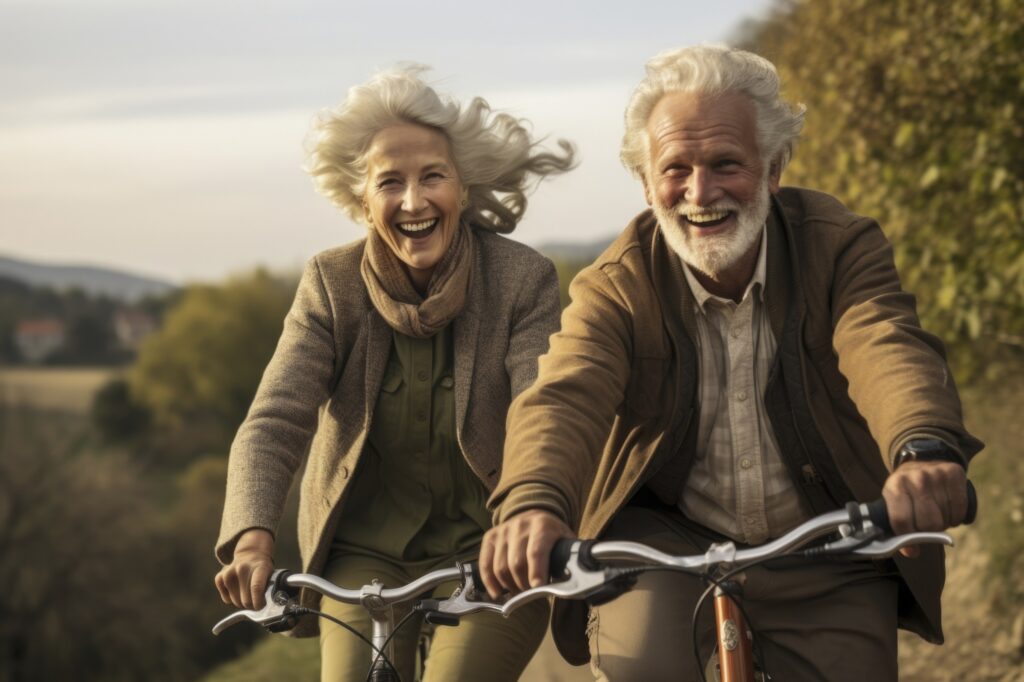
Stationary or recumbent cycling offers a gentle way to increase heart rate and promote circulation without putting undue stress on the joints. Cycling can help stimulate bowel movements and relieve constipation by engaging the abdominal muscles.
6. Pilates
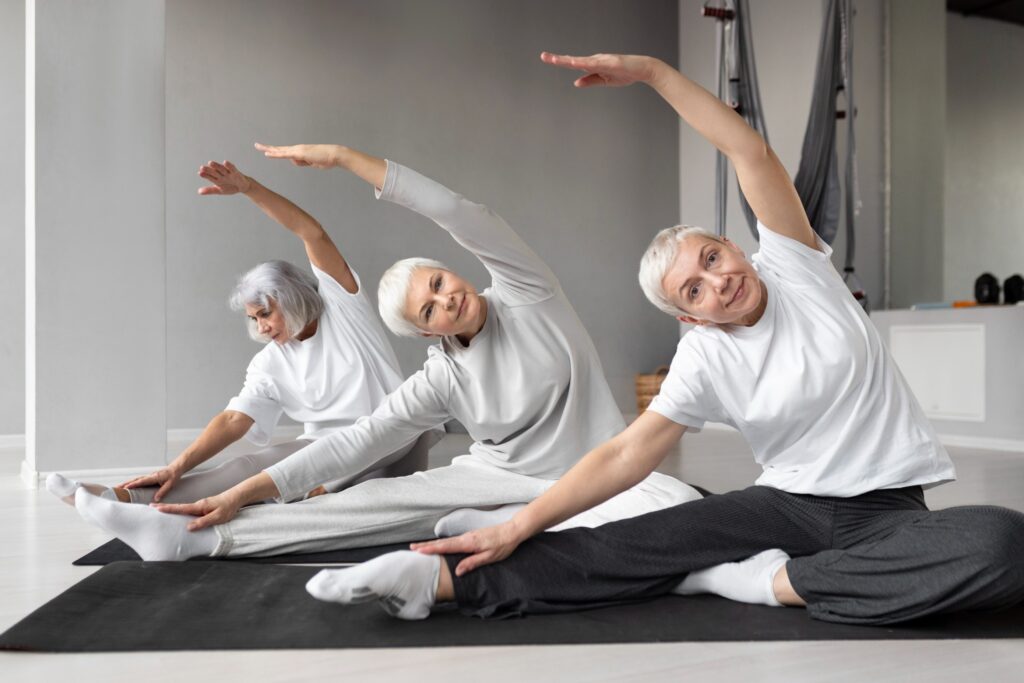
Pilates focuses on core strength, flexibility, and postural alignment. The controlled movements and emphasis on breathwork in Pilates can improve digestion by activating the deep core muscles and promoting relaxation of the abdominal region.
7. Chair Exercises
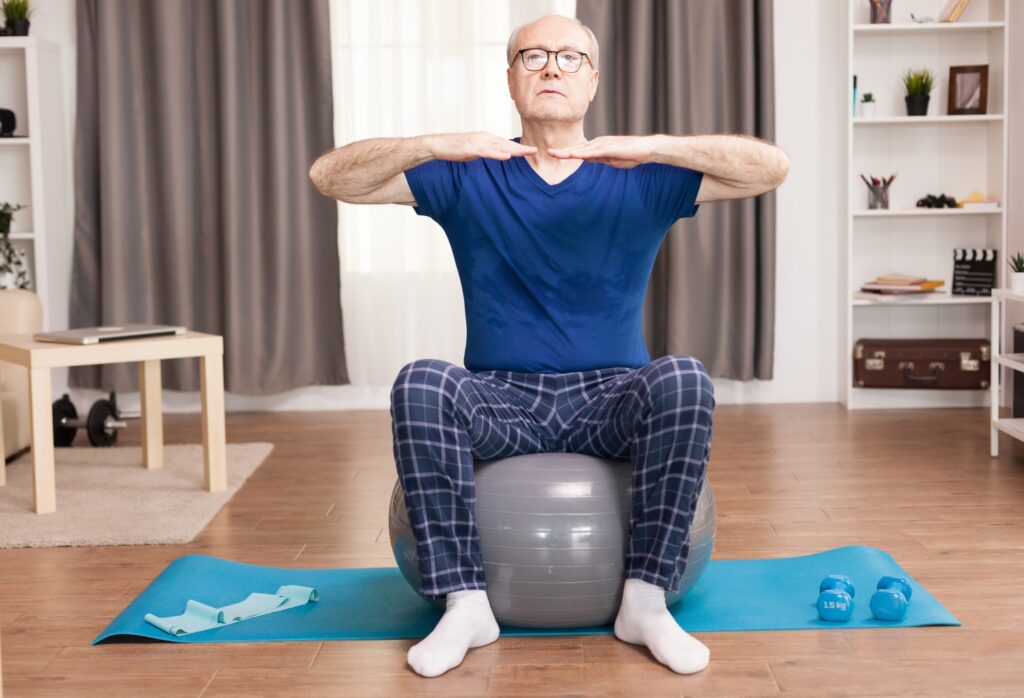
For seniors with limited mobility or balance issues, chair exercises offer a safe and effective way to stay active. Seated leg lifts, arm circles, and seated twists can help improve circulation, maintain flexibility, and support digestive health.
Benefits of Gentle Exercises for Gut Health
Regular physical activity offers numerous benefits for digestive health in seniors. Exercise stimulates peristalsis, the wave-like contractions of the intestines that move food through the digestive tract, preventing constipation and promoting regular bowel movements. Additionally, exercise helps regulate blood sugar levels, reduce inflammation, and maintain a healthy weight, all of which are important for optimal gut function.
Moreover, gentle exercises like yoga, Tai Chi, and Pilates promote relaxation and stress reduction, which can have a positive impact on digestion. Chronic stress can disrupt gut motility, alter gut microbiota composition, and worsen digestive symptoms. By incorporating stress-reducing activities into their routine, you can support overall digestive health and well-being.
Conclusion
Before we conclude, remember that before starting any new exercise regimen, seniors must consult with their healthcare provider to ensure safety, especially if you have pre-existing medical conditions or mobility limitations. It is essential to start slowly and gradually increase the intensity and duration of exercise to avoid injury.
Incorporating gentle exercises into your routine can be a valuable tool for seniors looking to support digestive health and maintain overall well-being in their golden years. Whether it’s walking, yoga, swimming, or Pilates, finding activities that you enjoy and that suit your fitness level is key. So, keep your guts groovin’ and your spirits high as you navigate the golden years with a wink and a wiggle!
REFERENCES
1. Harvard Health – https://www.health.harvard.edu/staying-healthy/healthy-gut-healthier-aging
2. NIH – https://www.ncbi.nlm.nih.gov/pmc/articles/PMC9818603/
3. Allied Digestive Health – https://allieddigestivehealth.com/5-exercises-that-aid-in-optimal-digestive-health/
4. Healthline – https://www.healthline.com/health/epi/exercises-digestion
5. Harvard Health – https://www.health.harvard.edu/staying-healthy/the-best-core-exercises-for-older-adults
FAQ’s
Q. How can I tighten my stomach at age 65?
A. At age 65, tightening your stomach involves a combination of exercises, including planks, crunches, and leg raises, to strengthen core muscles. Incorporate aerobic activities like walking or swimming for overall fitness, while maintaining a healthy diet rich in fruits, vegetables, lean proteins, and whole grains. Also, prioritize hydration and aim for adequate sleep to support your fitness goals and overall well-being. Consulting with a fitness professional or healthcare provider can provide personalized guidance tailored to your needs and capabilities. Remember, consistency and patience are key to achieving desired results.
Q. What is the number one exercise to do as you get older?
A. The number one exercise to do as you get older is strength training. Strength training helps maintain muscle mass, bone density, and overall strength, which are essential for mobility, balance, and preventing falls as you age. Focus on exercises that target major muscle groups, such as squats, lunges, push-ups, and rows, using a variety of resistance methods like bodyweight, resistance bands, or weights.
Q. Is Zumba good for seniors?
A. Yes, Zumba can be good for seniors as it provides a fun and engaging way to improve cardiovascular health, balance, coordination, and overall fitness, with options for low-impact movements. So, if your body can support it, you can try it out without worry.
Q. Why does gut health get worse with age?
A. Gut health can deteriorate with age due to factors like reduced digestive enzyme production, slower intestinal motility, changes in gut microbiota composition, and age-related conditions, leading to digestive issues such as constipation, bloating, and nutrient absorption problems.
Q. What are the best probiotics for 80 year olds?
For 80-year-olds, the best probiotics are those containing strains beneficial for gut health and immune function. Look for supplements with strains like Lactobacillus acidophilus, Bifidobacterium lactis, and Lactobacillus rhamnosus, which may help support digestive health and overall well-being in older adults. It’s essential to consult with a healthcare provider before starting any new supplement regimen to ensure safety and suitability for individual health needs.
Q. How much probiotics should seniors take?
A. Seniors should aim for probiotic supplements containing 5 to 10 billion CFUs per day, but individual needs vary. Consulting a healthcare provider is essential to determine the appropriate dosage based on health status and specific probiotic strains.
